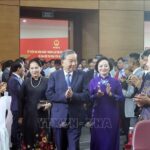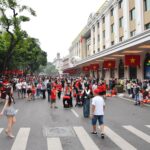A city official expressed hope that experts and scientists will continue to contribute their intellect and dedication, providing additional input to the City to help concretize the goals and solutions of the 18th Congress of the Hanoi Party Committee for the 2025-2030 term.
On the morning of October 22, a seminar titled “Realizing the Goals of Building a Modern, Civilized, Happy, and Breakthrough Developing Capital Hanoi in the New Era” was organized.
The seminar was attended by numerous experts, former officials, and specialists in various fields including politics, economics, architecture, and environmental development.
City leadership also participated in the seminar.
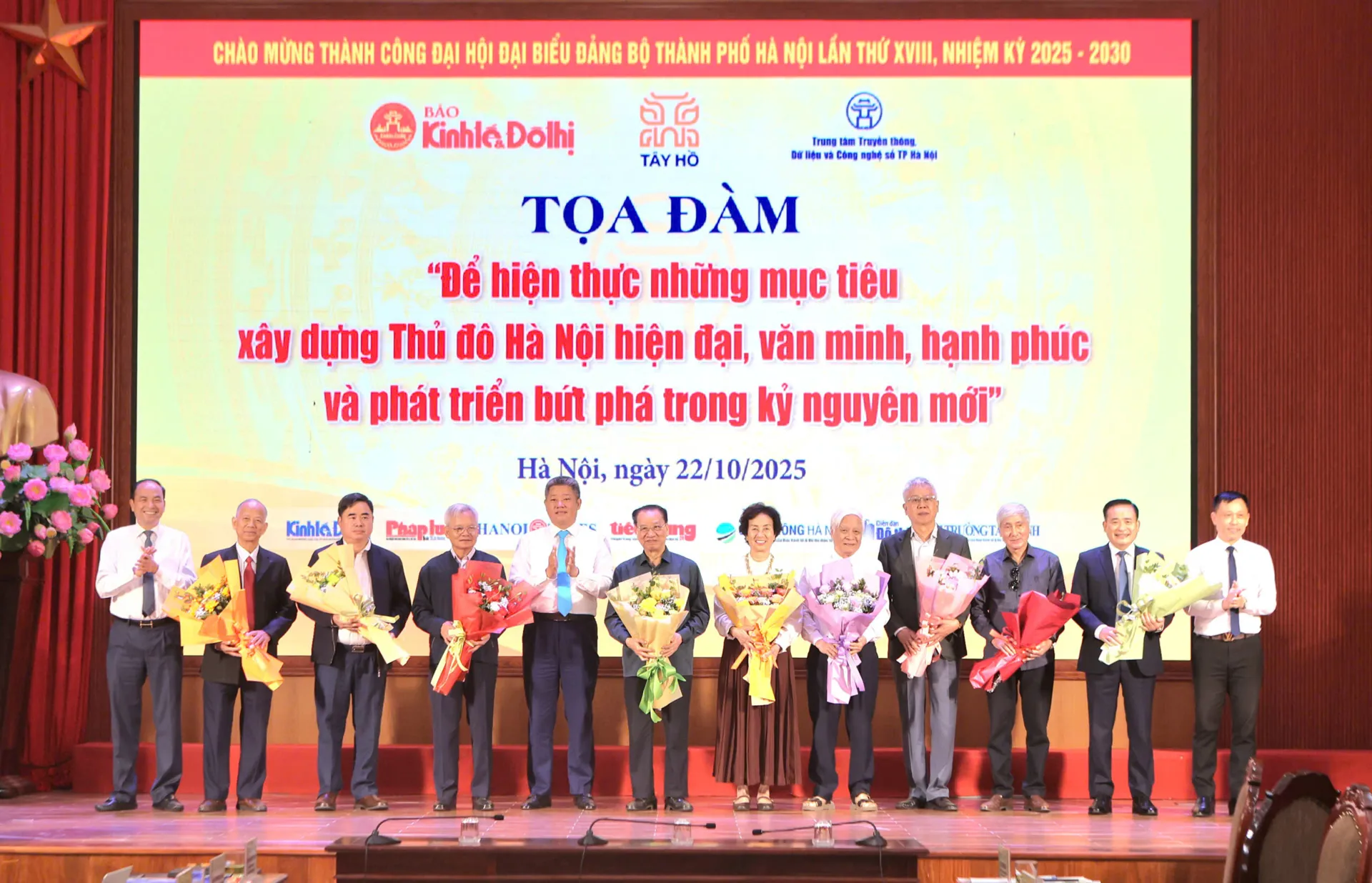
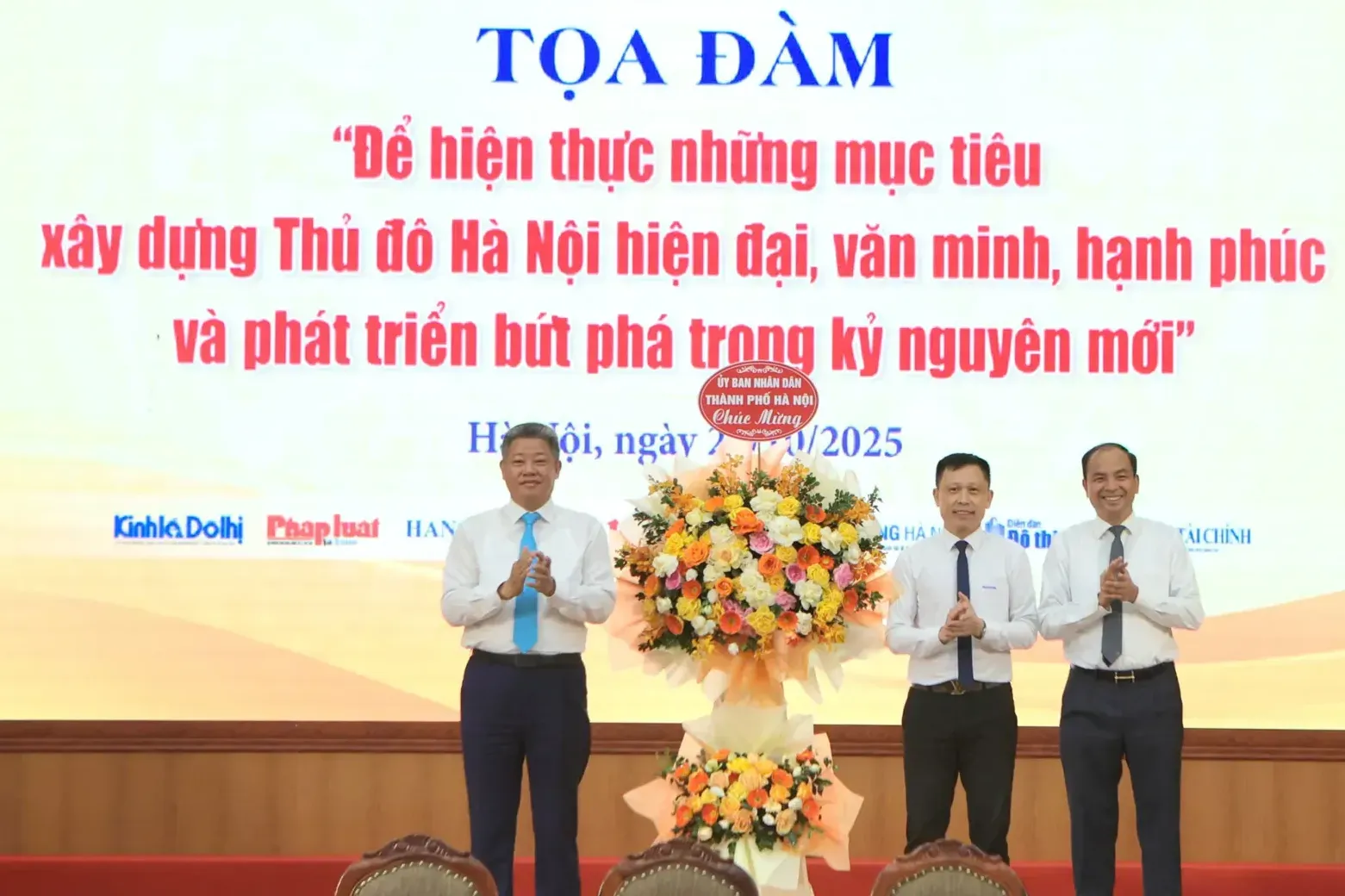
A Forum for Exchanging Ideas and Proposing Solutions for Capital Development
In his opening remarks, the seminar organizer stated that the 18th Congress of the Hanoi Party Committee for the 2025-2030 term has just concluded successfully, marking the beginning of a breakthrough development path for the Capital in the new era – civilized, modern, with happy citizens. To help implement the Resolution of the 18th Congress into daily life, local authorities and media agencies play an extremely important role.
Local authorities are the “extended arm” of the Party and State in organizing the implementation of the Resolution; the media serves as the force transmitting information and promoting strong action to carry out the goals and tasks set by the Resolution, contributing to building a civilized, modern, distinctive, creative Capital with happy citizens. The seminar with the theme “Realizing the Goals of Building a Modern, Civilized, Happy, and Breakthrough Developing Capital Hanoi in the New Era” was organized to promptly and accurately convey the spirit and content of the Congress Resolution to every citizen.
“Today’s seminar is an opportunity for scientists, experts, managers, and city leaders to exchange views, affirm outstanding achievements, and particularly the position and strength of the Capital in a new development phase. At the same time, it clarifies the goals, orientations, and breakthrough solutions identified in the Resolution of the 18th City Party Congress. From there, additional practical issues and solutions are proposed to help implement the Resolution of the 18th City Party Congress for the 2025-2030 term into life, affirming the pioneering role and creating comprehensive, breakthrough development for Hanoi Capital according to the goals and perspectives set by the Resolution, to build a civilized, modern, distinctive, creative Capital with happy citizens,” the organizer stated.
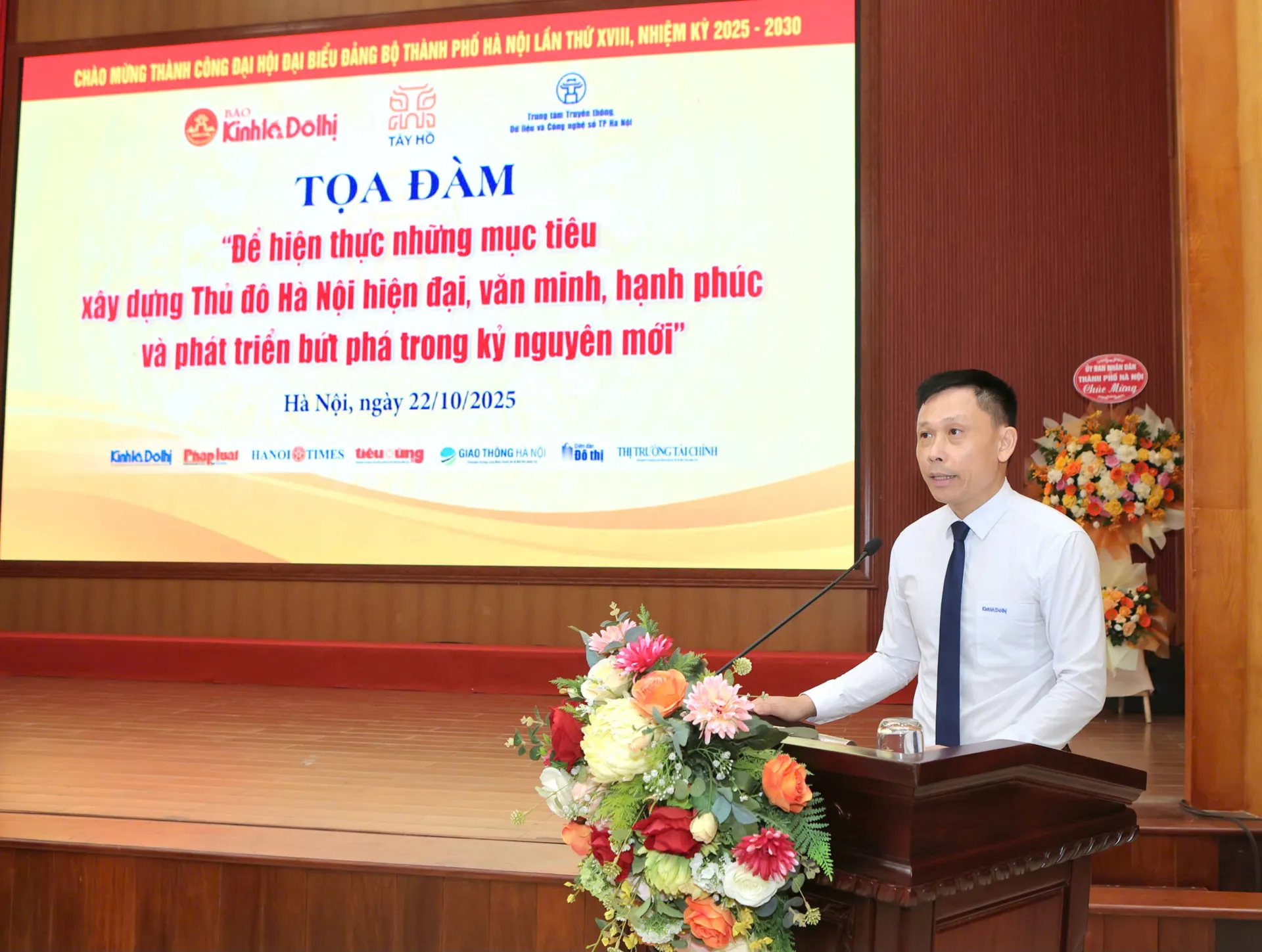
Promptly Disseminating Congress Results, Implementing the Resolution into Life
In his welcoming and opening remarks at the seminar, representing city leadership, a city official highly appreciated the initiative of the organizers in coordinating to hold a practical activity to promptly disseminate the Congress results and contribute to implementing the Resolution into life as soon as possible.
The city official stated that the 18th Congress of the Hanoi Party Committee for the 2025-2030 term, held from October 15-17, 2025, was an important political event, a milestone affirming the determination of the Party Committee, government, and people of the Capital in the new era, to build and develop a civilized, modern, happy Capital, making an important contribution to successfully achieving the country’s development goals by 2030, with a vision to 2045.
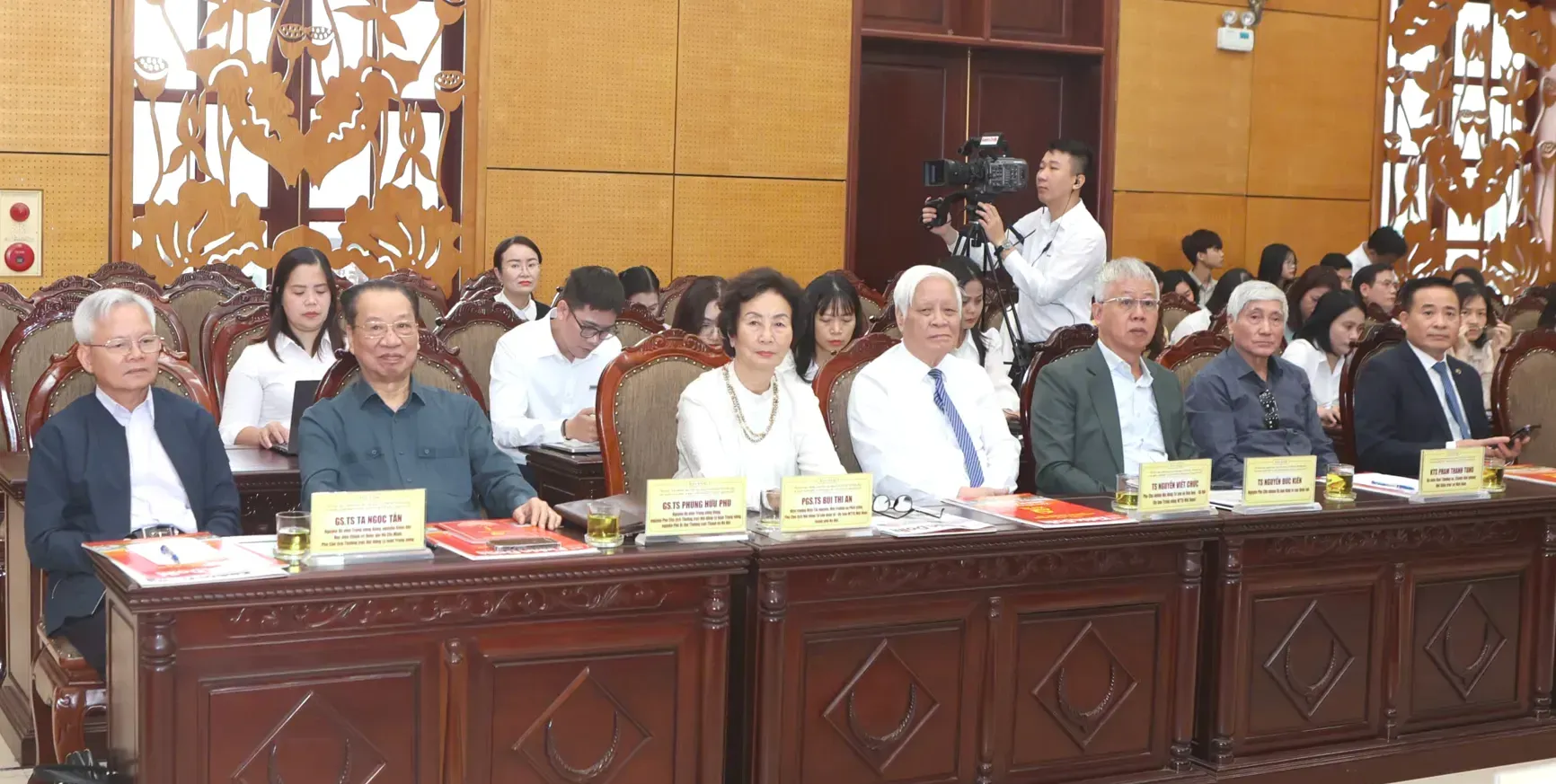
With the theme “Promoting the Millennium Tradition of Civilization and Heroism; Uniting to Build a Clean, Strong Party Committee; Pioneering Breakthroughs in the New Era; Developing a Civilized, Modern, Happy Capital”



